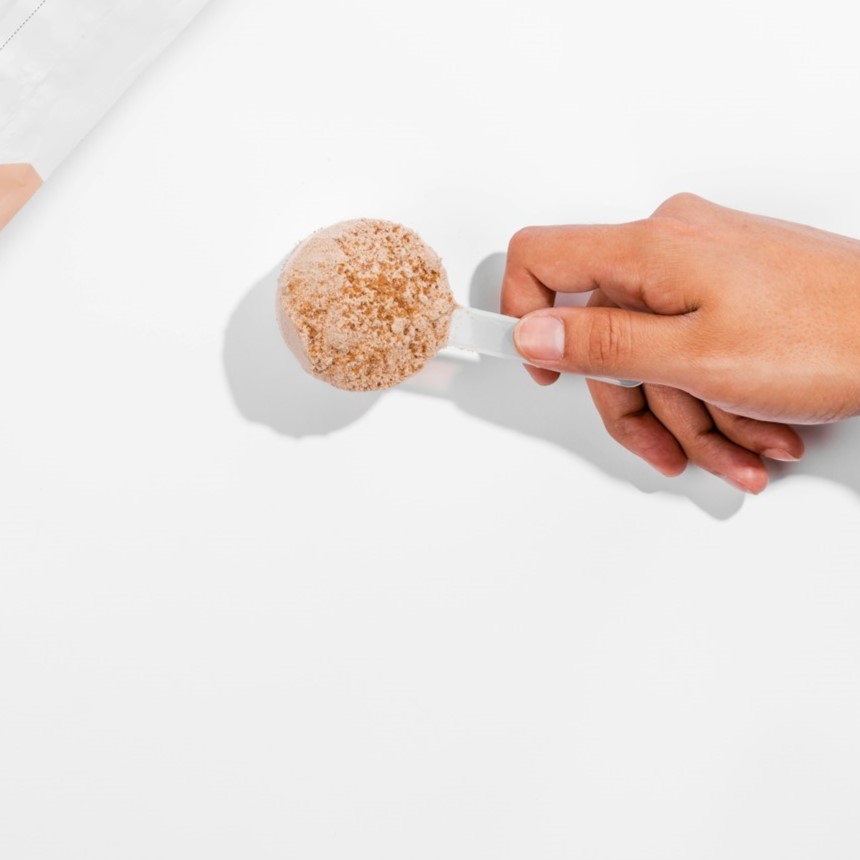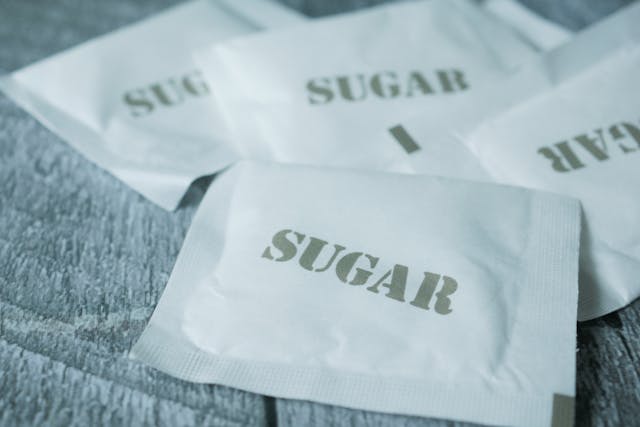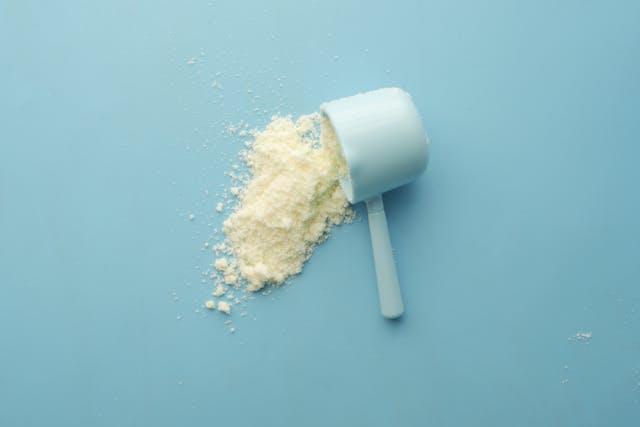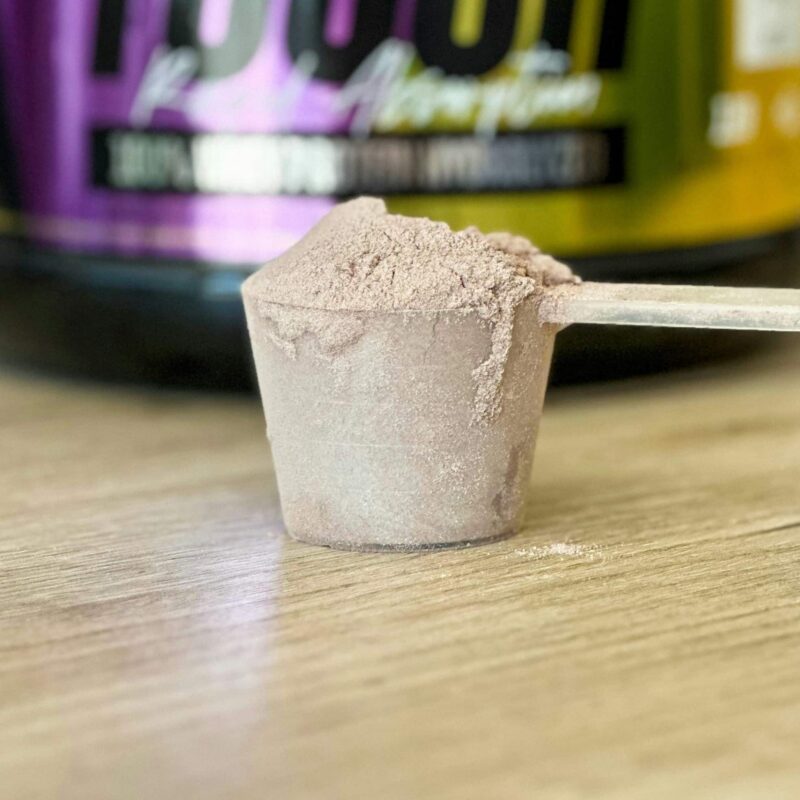What Protein Powder Should I Avoid? 7 Ingredients To Look Out For!

Picking up a box of protein powder at the store and looking at the long list of ingredients can leave anyone confused. But the thing is, the more ingredients there are, the more chances the protein powder isn’t natural enough. But do you know what ingredients you need to avoid in protein powders?
If you were consumed by the common perception that more ingredients might be better, we’re here to guide you. While this may apply to many other products, it doesn’t apply to protein powders. In fact, it is believed that fewer ingredients tend to keep the protein powder natural, and adding more artificial ingredients will make it unnatural.
So, are you ready to choose the best protein powder for your fitness goals?
To get the most benefits of your protein powder, here is a list of all the ingredients to avoid in protein powders.
1. Artificial Sweeteners

If you’ve done your research on protein powders, you must have come across the fact that they shouldn’t have artificial sweeteners.
As the taste of protein powder itself is a bit bland, most brands have started to include artificial sweeteners to enhance the taste and keep customers drinking more of it regularly.
However, these artificial sweeteners don’t provide enough benefits, apart from making the protein powder worth drinking.
The most common artificial sweeteners are aspartame and sucralose.
As aspartame is a widely used artificial ingredient, it has been studied mostly by food scientists. However, when we use aspartame under the approved conditions, some scientists believe it’s fine.
On the other hand, sucralose has its own effects, but some studies also suggest that short-term consumption is fine.
Still, it is believed that artificial sweeteners can cause digestive problems. While it’s better to avoid them, you need to make sure that their consumption is much less. Otherwise, you might face consequences in the long run.
2. Fillers

A common yet unhealthy practice in cheap and low-quality protein powder manufacturing is the addition of fillers.
The purpose of adding fillers is to bulk up the protein powder. In this way, the manufacturers save a lot of money on production. However, these fillers can be unhealthy for consumers.
Some examples of fillers include:
- Cornstarch
- Maltodextrin
- Coconut flour
- Sugar
- Psyllium fiber
These fillers can be harmful to people who are already susceptible to digestive problems. They can also cause bloating and constipation in some individuals.
Also, these fillers are non-nutritive, meaning they do not provide enough nutritional value. So, it’s better to avoid such low-quality proteins instead of getting blinded by the lower cost.
3. Food Additives

Food additives may seem like common ingredients in products, but they can also be harmful, especially if you consume protein powder regularly.
Even if your protein powder has these food additives in small amounts, they can cause digestive problems.
Some problems caused by food additives can include:
- Stomach pain
- Constipation
- Gas
- Bloating
- Diarrhea
The reason behind these gastrointestinal issues caused by food additives is because they are difficult to digest. Thus, food additives have an impact on gut microbiota, which can cause health issues for some people.
4. Thickeners And Gums
Xanthan gum is a common thickener used in protein powders.
As these thickeners and gums are made from soy and corn, they can lead to constipation and other digestive issues.
While these thickeners can enhance the taste of the protein powder and increase its shelf life, they should not be at the cost of your own health. For some sensitive people, these thickeners can also cause allergic reactions. Other side effects include abdominal pain, lethargy, passing large volumes of stool, etc.
5. Vegetable Oils And Fats

Vegetable oils and fats are often derived from trans fats. Trans fats can cause inflammation and are generally considered more harmful than saturated fats.
That is why the addition of vegetable oils and fats will also have side effects. Also, they can increase the levels of bad cholesterol in the body. So, if you’re already suffering from cholesterol-related health issues, you need to be careful. It’s best to consult your doctor in this regard. Research also stated that trans fats can be detrimental to heart health.
Wondering why manufacturers still use these fats in protein powder?
Well, the main reason is to enhance the texture of the powder and increase its richness.
6. Skim Milk Powders

The problem with milk powders is that they are milk-based. When lactose-intolerant people consume these powders, it can cause digestive issues.
The side effects can include problems in digestion, constipation, bloating, etc.
If you’re also lactose-intolerant, you should avoid this ingredient in your protein powder.
Also, the fact that skim milk powder is a cheap bulking agent makes it another reason you should avoid it in your protein powder.
7. Gluten
Some people are sensitive to gluten. If your protein powder contains gluten, this gluten intolerance can cause negative health effects.
Some consequences of gluten intolerance include:
- Headache
- Fatigue
- Mood swings
- Skin conditions
Gastrointestinal distress is a common health issue caused by the intake of protein powder that contains gluten. If you are already sensitive to gluten, you should avoid this ingredient in your protein powder. Otherwise, you can always find out if you are.
Take-Away Message
All in all, there are some ingredients that you should avoid in protein powders. Some may be unhealthy, while others may simply not suit you.
Protein powders are great for people who want to enhance their fitness goals and boost their energy while working out.
However, it’s equally necessary to check the ingredients of your protein powder before buying it.
While most protein powder ingredients are fine to consume, if you’re sensitive or allergic to some ingredients, you should avoid them. Also, the most common side effect of protein powder intake is digestive issues.
Remember that the fewer the ingredients, the better your protein powder is!












